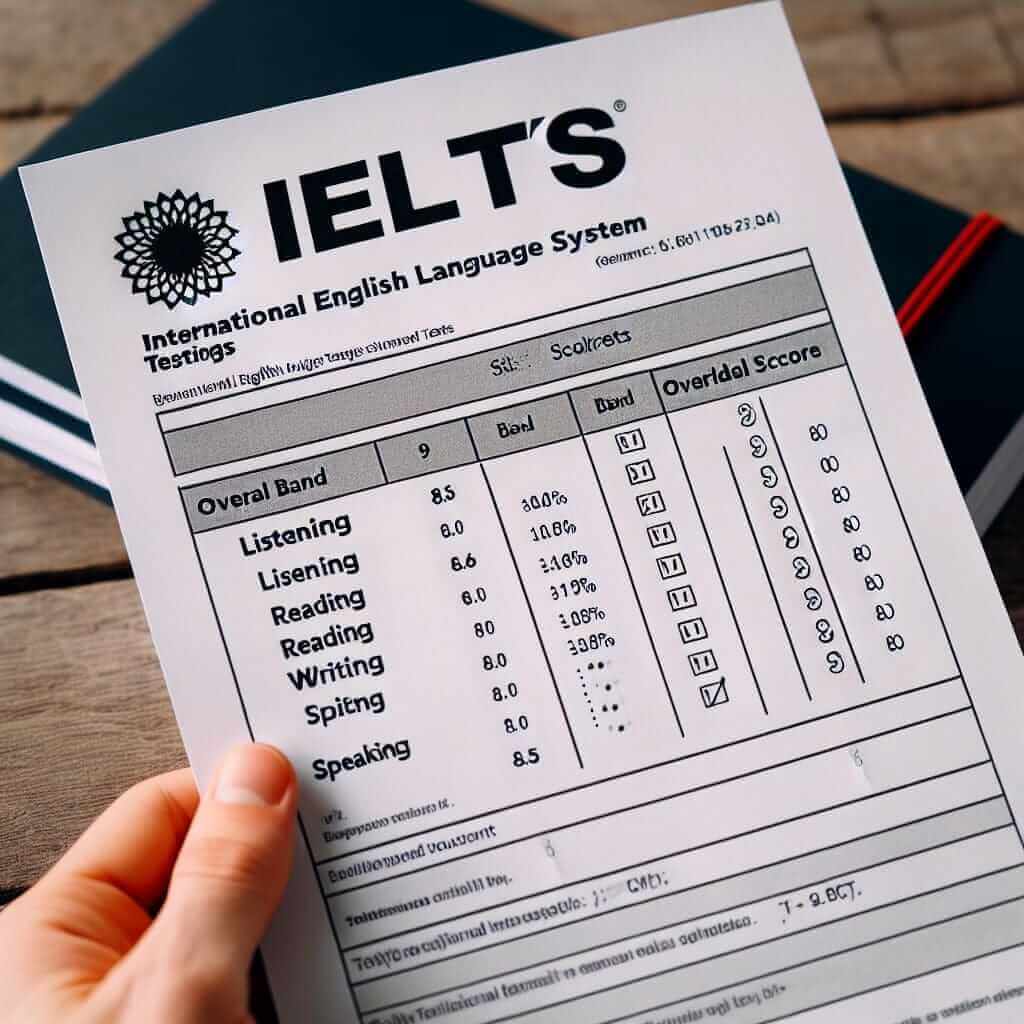For those aspiring to study, work, or migrate to an English-speaking country, the International English Language Testing System (IELTS) stands as a crucial step. An IELTS score serves as a globally recognized measure of English language proficiency. Among these scores, achieving an IELTS 8.0 signifies a mastery of the language, opening doors to a world of opportunities. But what exactly constitutes an IELTS 8.0, and how does it translate across the four sections of the test?
Deciphering an IELTS Band 8.0
An IELTS overall band score of 8.0 signifies a candidate as a “Very Good User” of the English language. Such individuals demonstrate:
- Fluency and Coherence: They can communicate effectively and spontaneously, with ideas presented logically and smoothly across all four skills.
- Lexical Resource: They command a wide range of vocabulary, using it flexibly and accurately with minimal errors.
- Grammatical Range and Accuracy: They showcase mastery over a wide range of grammatical structures, using them accurately and appropriately.
- Pronunciation: They maintain clear, natural pronunciation, easily understood by native speakers.
Achieving an 8.0: A Breakdown by Skills
While an overall band 8.0 is the goal, understanding the requirements of each section can guide your preparation:
1. Listening:
- You can follow complex lines of argument and understand implicit meaning.
- You can identify specific information from a conversation or lecture, even with distractions.
2. Reading:
- You can grasp the main ideas, supporting details, and infer the writer’s opinion or purpose in complex texts.
- You can skim and scan effectively to locate specific information quickly.
3. Writing:
Task 1: You can summarise information from graphs, charts, or diagrams with accuracy, using a range of vocabulary and grammatical structures.
Task 2: You can present a well-structured argument or opinion essay, supporting your ideas with relevant examples and evidence.
4. Speaking:
- You can speak fluently and spontaneously on a range of familiar and unfamiliar topics.
- You can express your ideas clearly and cohesively, using appropriate vocabulary and grammar.
- You can participate actively in discussions, responding appropriately to questions and prompts.
Illustrative Examples from IELTS:
Consider this Speaking test prompt:
“Describe a time you had to learn something new. You should say:
- What you had to learn
- Why you needed to learn it
- How you learned it
- And explain how you felt about learning it.”
A candidate achieving an 8.0 might respond with:
“Well, recently I had to learn how to use a new software program for my job. It was a cloud-based project management tool, and our company decided to adopt it to improve team collaboration. Honestly, at first, I felt a bit daunted as I’m not particularly tech-savvy. However, I knew it was essential for my role, so I embraced the challenge. I took advantage of the online tutorials provided by the company and even persuaded a colleague who was already familiar with the software to give me some pointers. It was quite rewarding to eventually master it, and now I use it daily. It’s amazing how something so initially intimidating can become second nature with a bit of effort.”
This response showcases fluency, a wide range of vocabulary, accurate grammar, and a natural flow of ideas.

Essential Tips for Scoring an 8.0:
- Consistent Practice: Engage with all four skills regularly, simulating exam conditions.
- Expand Your Vocabulary: Read widely, noting down new words and their usage in context.
- Master Grammar: Identify your grammatical weaknesses and actively work on improving them.
- Seek Feedback: Have an experienced IELTS tutor or teacher evaluate your performance and provide constructive criticism.
- Embrace Mistakes: View mistakes as learning opportunities. Analyse your errors to understand the areas you need to focus on.
Conclusion:
Achieving an IELTS band 8.0 is a significant accomplishment, reflecting dedication and hard work. By understanding the specific requirements of each band and diligently honing your English language skills, you can strive towards this goal and unlock a world of possibilities. Remember, consistency, strategy, and focused practice are key to reaching the pinnacle of English proficiency.